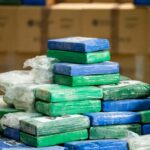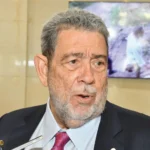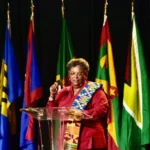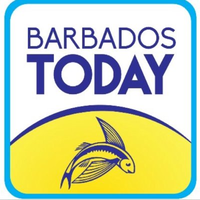A Government backbencher has signalled her disagreement with the decision to rename Independence Day, Barbados National Day.
Member of Parliament for St Michael South Central and former Minister in the Ministry of Economic Affairs and Investment Marsha Caddle has insisted that the word independence “means something”, a day after the name was officially dropped.
“While it may seem desirable to unify all Barbadians under a non-specific, non-revolutionary Barbados National Day banner, the remaining need for revolution, the unfinished business of independence cannot be sanitised,” she declared in a post on Twitter on Wednesday.
“The new economic enfranchisement project must be allowed to thrive – one in which economic power and ownership are rebalanced towards those people of whom we must never lose sight, and which journey we must continue to name unapologetically – the journey of independence.”
On Tuesday, Minister of Home Affairs Wilfred Abrahams announced the name change after 55 years of the Barbadians marking the day as Independence Day, explaining that the aim was to combine celebrations for that day and Republic Day which both fall on November 30.
Amid backlash from the public and the Democratic Labour Party (DLP) who have charged, among other things, that the name change was an attempt to erase the legacy of the DLP whose founder Errol Barrow led the country into independence, Caddle pointed out that in the national independence journey, which she said started well before 1966, the legacy of the Barbados Labour Party (BLP) was “unmistakable”.
“It was independence when Grantley Adams embraced the workers’ uprising of 1937 and then helped launch the BLP the following year as the party of workers’ rights and unity. It was independence when Sir Grantley secured the right to vote for all Barbadians by 1951,” she said.
“Workmen’s Compensation Act, increasing old age pension, expanding school facilities so poor people’s children could actually benefit from free education, building the Deep Water Harbour, social welfare, affordable housing projects were all transformative acts of independence led by the BLP.”
She acknowledged, as well, that when Barrow “ran a uniquely significant leg of the relay race to help Barbadians realise independence from British colonial masters after three centuries of annihilation and oppression”, that was the start of a new phase of independence.
Caddle maintained that “the making of a nation” continued under successive Governments led by both parties, through further expansion of free education, school feeding, the Tenantries Freehold Purchase Act and economic modernisation.
She acknowledged the new phase “of nation-building, of continuing to forge an identity, of independence” when Barbados transitioned to a republic on November 30, 2021, but stressed that was just the beginning.
Pointing to the importance of Independence Day to her personally, as well as to the nation, Caddle added: “Independence Day is my favourite holiday. It is a day on which I feel both my hardest, most revolutionary self and my softest in the embrace of my ancestors, from Nanny Grigg and Bussa, to Dalrymple Caddle who perished in the 1937 workers’ revolution, to Grantley Adams who declared in 1951 that we all had enough humanity to vote, to Errol Barrow who declared in 1966 that we all had enough clarity to govern ourselves, to Mia Mottley who declared in 2021 that we all have enough vision to abandon colonial premises and help lead the world with moral authority.
“This is the importance of Independence Day. We crave the name because it contains our struggle. And because we are not yet finished.”
Caddle also shared on the social media platform that from childhood, she felt a deeply-held kinship with the idea of independence.
“The word is activist and revolutionary; it feels [all] at once a noun, a verb, a state of mind, a journey, a becoming. It suggests a relationship – the rejection of the oppressor in a way that is felt, that he can never mistake, that is reaffirmed with every new reclamation of one’s origins and identity,” she asserted, adding that as a Black girl growing up in a working class environment and in a former colony, she took the word as “a personal challenge to overcome”
“It was independence when my parents saw their way financially to get rid of our pit toilet and put on a wall back. It was independence when I stopped chemically straightening my hair and wore my afro as it grows, defying gravity and occupying space,” Caddle recalled.
“Throughout our lives, in ways big and small, many of us have used this word and idea to help power our emancipation journeys, and used this day to reflect on the extent to which we are remaining true to ourselves, and doing right by our people.”










